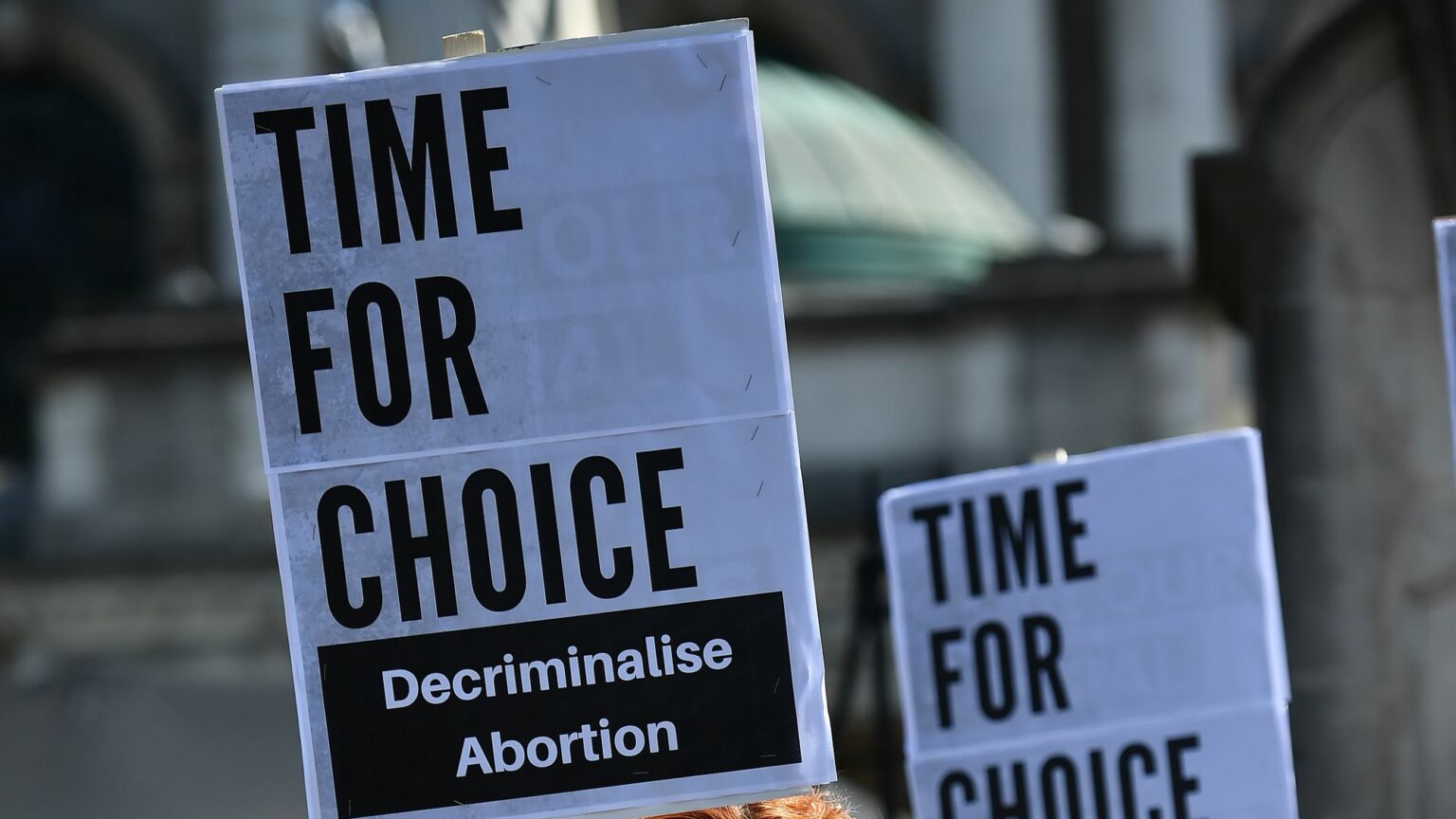The new abortion law is nothing to fear
Late-term abortions are never entered into lightly.

Want unlimited, ad-free access? Become a spiked supporter.
Last week, MPs voted to remove the threat of criminal prosecution from women who terminate their pregnancies at home after 24 weeks. The response among many in the media has been nothing short of hysterical.
One expects anti-abortion groups to get in a tizzy and wildly exaggerate the effects of a change like this. But in this case, the discourse among even many feminists suggests that they have lost touch with reason.
All this, over a change in the law that is actually relatively small and doesn’t constitute ‘decriminalisation’. Labour MP Tonia Antoniazzi’s amendment to the Crime and Policing Bill did not, in fact, remove abortion as a crime from the criminal statute in England and Wales.
Abortion remains a crime, just as it has since 1968, unless the following conditions are met: it is signed off by two doctors; the procedure is carried out in a hospital or licensed clinic, or the abortion pills are prescribed by a doctor to take at home; and the pregnancy must be less than 24 weeks gestation. This remains the law.
In 2022 (the last year for which figures are available), almost a quarter of a million women in England and Wales had abortions under these regulated conditions. Almost 90 per cent of abortions were under 10 weeks. Around one per cent were at 20 weeks and over.
And so the only women for whom this change means anything are those who, for whatever reason, were found to have terminated their own pregnancy outside the restricted criteria when abortion pills can be used at home.
The number of women who do this is, unsurprisingly, vanishingly small. According to the Crown Prosecution Service, between 2019 and 2023 five women were charged with administering or procuring drugs or using instruments to induce an abortion. The last year for which there are official abortion figures recorded, there were almost 250,000 legal abortions – and yet, over a period of four years, just five women faced prosecution for aborting their own pregnancy.
The most notorious prosecution – which eventually resulted in the amendment – was of Sarah Catt. She was jailed in 2012 for eight years, reduced on appeal to three and a half. She was convicted of aborting her baby at 39 weeks, after concealing her pregnancy from her family.
At the time, I was chief executive of the largest provider of abortion services in the UK, the British Pregnancy Advisory Service. We were proud of a service that provided abortions to the latest day that we could. When the government, by sleight of hand, reduced the definition of the 24-week time limit by one day, we challenged the secretary of state in the High Court.
We always complied with the law to the letter. But we also believed that if a woman was found to have self-induced her own abortion it would surely never be prosecuted. What would be the point of such a prosecution? If laws are supposed to be about deterrence, where were the women who needed to be deterred?
We knew what it meant for a woman to seek a legal abortion between 22 and 24 weeks – when she was feeling not just ‘fetal movement’, but also the kicking and wriggling that brings such joy in a wanted pregnancy. We knew these women were not brutal, amoral and unaware of the unborn life in their bellies.
These women did not take their decision to have an abortion lightly, seeing the pregnancy as unimportant. They were not narcissists. In fact, they were often quite the opposite – weighed down by the responsibilities they had to their existing families. Yes, typically, these women had children already. But with every fibre of their being they felt that this pregnancy could not progress.
Late, legal abortions are very different from those induced by the abortion pill in the earliest weeks. The latter are often seen as an extension of birth control, but no one sees a later abortion like that. In a clinic, every effort is taken to reduce the burden on the woman – a surgical procedure under general anaesthesia if possible, or induced labour after an injection to stop the heart. But it is still an awful, grim experience. With the right to choose comes the moral weight and responsibility of making that choice.
There are two ways of thinking about women who end these advanced pregnancies. You never know all the circumstances that lead a woman to a clinic. Either you extend trust and good faith to her, assuming she has weighed up her options and made the moral choice her conscience calls for, or you assume she lacks the capacity for reasoned, moral thinking. As the woman is the one who has to live with her choices, I prefer to trust her to make her own choice, rather than listen to the opinions of those who know nothing about her.
The decision to remove the threat of prosecution from the tiny number of women who are found to have, for whatever reason, taken abortion pills at home after 24 weeks, does not signal that society finds third-trimester abortion acceptable, or even that it finds a set-in-stone time limit to be wrong – as I admit I do. It simply suggests that those parliamentarians who voted for the amendment are capable of compassion towards women whose circumstances are such that they have been driven to this.
What purpose does it serve for women in these circumstances to be prosecuted? They are hardly likely to be repeat offenders. They are hardly a threat to society. In a long post on X, writer and philosopher Kathleen Stock, an awesome intellect I admire hugely, argues: ‘The law against late-term abortion acts as a deterrent against mothers killing their babies. If you lift it, you will get more deaths.’ Really? Is it just the law that prevents women from inflicting on themselves the horror of self-induction of an almost full-term pregnancy?
If you are against abortion, then be consistent. Oppose all abortion. An embryo at three weeks is no less human than a fetus at 30 weeks. A legal abortion is surely not morally different to an unlawful one, if you believe a fetus in utero is no different to a child. On the other hand, if you believe that a woman is best placed to decide on her capacity to bring a child into the world and to care for her family, then you need to trust her to make the right decisions.
I believe that we, as abortion providers, as advocates who uphold women’s right and responsibility for decisions about their own pregnancy, bear some responsibility for the calamitous hysteria provoked by last week’s sensible and humane decision. We have known that early abortion is less contentious than later procedures, that its ubiquity makes it easy to defend, and that unwanted pregnancy is feared and abortion as a solution is reassuring (even if you don’t need it). And because of this, we have discussed it readily. But we have backed away from a defence of later abortions because they are the least understood and most harrowing procedures. As a result, a seemingly uncontroversial bill, which considers the pointlessness of punishing women who are unlikely repeat offenders or exemplars, spirals into a debate about the fundamental principles of abortion law.
Should abortion be a decision made by women or doctors? Should an abortion that is legal at five minutes to midnight be a crime at five minutes past? Should abortion belong in the criminal law at all? If abortion were simply a matter for a woman and her doctor, and were subject to no special criminal law, would we see more late abortions?
Well, here’s the truth. In Scotland, before 1990, unlike in England, there was absolutely no time limit on abortion – and yet there were no more procedures than here. Why? Women didn’t want to have late-term abortions, and doctors didn’t want to perform them.
As I have argued on spiked, the genuine decriminalisation of abortion is the best framework in which it should be provided. But to do so requires public consultation, with the moral and legal aspects of the debate properly scrutinised. We can’t sidestep difficult arguments. We need to air them, debate them and win them.
Ann Furedi is author of The Moral Case for Abortion: A Defence of Reproductive Choice.
£1 a month for 3 months
You’ve hit your monthly free article limit.
Support spiked and get unlimited access.
Support spiked – £1 a month for 3 months
spiked is funded by readers like you. Only 0.1% of regular readers currently support us. If just 1% did, we could grow our team and step up the fight for free speech and democracy.
Become a spiked supporter and enjoy unlimited, ad-free access, bonus content and exclusive events – while helping to keep independent journalism alive.
———————————————————————————————————————————–
Exclusive January offer: join today for £1 a month for 3 months. Then £5 a month, cancel anytime.
———————————————————————————————————————————–
Monthly support makes the biggest difference. Thank you.









Comments
Want to join the conversation?
Only spiked supporters and patrons, who donate regularly to us, can comment on our articles.